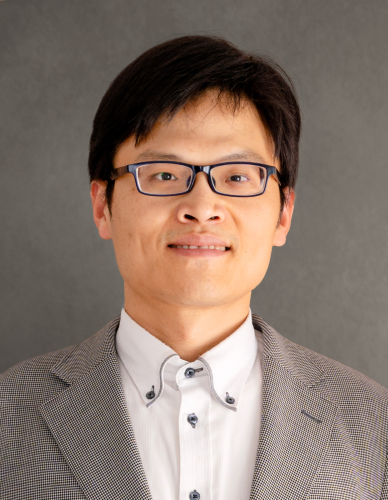Invited Speaker
TBA
ICRAS 2025 Invited Speakers
Prof. Dawei Shi, Beijing Institute of Technology, China
Bio: Dawei Shi is currently a Professor with the School of Automaton, Beijing Institute of Technology. He received the B.Eng. degree in electrical engineering and automaton from the Beijing Institute of Technology, Beijing, China, in 2008, and the Ph.D. degree in control systems from the University of Alberta, Edmonton, AB, Canada, in 2014. From 2017 to 2018, he was a Postdoctoral Fellow in bioengineering with Harvard University, Cambridge, MA, USA. His research interests include the analysis and design of advanced sampled-data control systems, with applications to biomedical engineering, robotics, and motion systems. Dr. Shi is an Associate Editor/Technical Editor for several international journals, including Control Engineering Practice, IEEE/ASME Transactions on Mechatronics, IEEE Transactions on Industrial Electronics, and IEEE Control Systems Letters.
Speech Title: Event-Triggered Learning for Data-Driven Predictive Control
Abstract: Advancements in new sensing devices and big data technology have enabled the generation and collection of massive input-output data for control system design. Under this background, it becomes very important to evaluate the validity and effectiveness of the data sampled to be used in modeling and control. In this talk, we introduce an event-triggered learning scheme that can evaluate the importance of incoming data samples online and only update model learning when informative data samples are identified. We also show the possibility of applying the learning approach to data-driven predictive control, through tube-based/minmax MPC approaches. An application example for intelligent insulin delivery will be used to illustrate the effectiveness of the proposed approach.
Assoc. Prof. Weiwei Wan, Osaka University, Japan
Bio: Weiwei Wan was an associate professor working at the School of Engineering Science, Osaka University, Japan. He is an IEEE senior member, having affiliations with the IEEE Robotics and Automation Society, and the IEEE System, Man, and Cybernetics Society. He is also a member of RSJ (the Robotics Society of Japan) and JSME (Japan Society of Mechanical Engineers). Weiwei Wan's major interest is smart manufacturing using single or multiple robotic manipulators: Developing and deploying grasping planning, motion planning, and other low level and high level task planning algorithms for next-generation factories. He is also studying visual perception, force control, and learning approaches to make up for the inherent shortages of planning algorithms.
Speech Title: Applications of Traditional AI, Physical AI, and Non-AI Analytical Methods in Robotic Manipulation
Abstract: This talk presents several recent research outcomes from ourlaboratory, each employing a distinct approach: traditional AI,Physical AI, and non-AI analytical methods. I will highlight andcompare the unique characteristics, advantages, and limitations ofthese approaches in the context of robotic manipulation. Thediscussion will conclude with a perspective on the future trends andpotential integration of these methodologies.
Assoc. Prof. LAU Darwin Tat Ming, The Chinese University of Hong Kong
Bio: Dr. Darwin Tat Ming LAU received his B. Eng (1st Hons) and B.CS degrees from the University of Melbourne, Australia, in 2008. He received his Ph.D. degree in the area of robotics in 2014 from the University of Melbourne, Australia. From 2014 to 2015, he was a postdoctoral research fellow at the Institute of Intelligent Systems and Robotics, University Pierre and Marie Curie, Paris, France. He joined the Department of Mechanical and Automation Engineering, the Chinese University of Hong Kong (CUHK), in October 2015 and is currently an Associate Professor. His research focuses on topics in robot manipulation, particularly related to kinematic and dynamic analysis, design, optimisation and control of novel mechanisms, and human-robot teleoperation, including cable-driven parallel robots and bio-inspired robots. In addition to fundamental research, Dr. LAU also has great interest in the application of novel mechanisms to impactful real-world applications, including building construction (such as robotic brick laying, facade cleaning, painting, foundation works and facade inspection), musculoskeletal robots and wearable assistive devices.
Speech Title: Advances in Cable-Driven Robotics for Smart City and Living
Abstract: The city and living quality have been significantly affected by the ageing workforce and the shortage of labour, particularly for tasks that are dangerous or under harsh working conditions. In this presentation, various types of cable-driven robots and real-life applications related to building construction, utilities maintenance, and human assistive devices are introduced. Different robot types include reconfigurable mechanisms, underactuated suspended systems and flexible robots. Example applications include robots for brick construction work, building inspection, wearable assistive devices to augment human capabilities and robots to physical touch to comfort people. To realise these challenging applications, advances in topics related to mechanism design, kinematics, dynamics, workspace analysis, control and intelligence will be presented to allow these robots to operate within complex environments and settings.


.jpg)